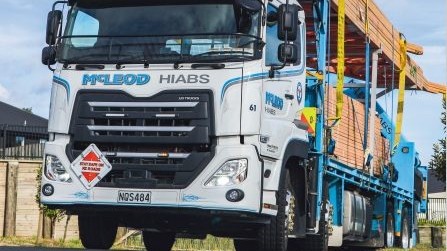Past Participation

I like history. I enjoy learning about the past. I’m no buff, but I’m the type of person who will watch a movie, series or documentary and sit on Wikipedia at the same time schooling up on the things they reference.
In the past few years, I’ve found engaging, entertaining podcasts that explore topics and stories from the past – and an oft-quoted, tongue-in-cheek quip by one of my favourite hosts is: “The past was the worst.”
The thing with history is that it’s constantly being written, and we’re all actors in it. We often don’t even realise it, but by our daily action or inaction, we’re all influencing what happens today and what’s recalled as history tomorrow. The fact that we can advance simultaneously means that what is present and what will be future are better, and what was the past is worse. International air travel or weeks at sea in the doldrums? The past was the worst…
Modern medicine or bloodletting and leeches? The past was the worst…
Covid-19 or the Black Death…? Okay, history’s still writing that one, but you see where I’m going with this.
It’s true that the past can be better, too. The problem is, we only realise that in the future, once the decisions of today have been made, the status quo has been changed and the impacts are felt – only then are the consequences realised and lamented. When it comes to New Zealand’s roads, this is the history I believe has been in the making over the past few years. And with the announcement last month of an 80kph speed limit on 76km of SH5 coming into effect, it’s clear the ink is now drying.
The ‘slower is safer’ school of thought is writing the books for future generations, and there’s little doubt that further speed reductions will follow around the country. Whether ‘slower is safer’ is true is a topic for another time. Still, my unfortunate observation is that roads are today not seen and treated as vital national arteries, but as a grudge expense. It’s quicker, easier and cheaper to slow down vehicles than to invest in creating and maintaining a quality piece of national infrastructure.
What will the safety, economic and social impacts of the SH5 slowdown be? NZTA says it will let us know in 12 months. Cynically, I feel that paragraph of history has already been written, but let’s give the agency the benefit of the doubt for now. At least it has also made provision for future improvements to the corridor. (Read the story on page 14.)
While organisations such as the NZTA are obliged to go through a consultation process before making these decisions, it’s a wide-held belief that this is merely a formality. If you followed any of the goings-on concerning the lowering of the limits on SH5 – petitions, committee meetings, public comments (on social media, anyway) by those who use the road daily and understand that this is a first step down an unpopular path – you’ll find it hard to argue any of that.
The moral of the story? History is important, but all too often, it’s written by those with a vested interest. So, good on everyone who had their say, voiced their displeasure and tried to argue an alternate point of view. Whether it was influential or not, if we don’t participate, we can’t complain about the history being written.
And future generations might look back and remark, “The past was the worst” for an entirely different reason.

Read more
40 fabulous years
0 Comments3 Minutes
40 not out!
0 Comments4 Minutes
The more things change…
0 Comments5 Minutes
Keeping up with the times
0 Comments4 Minutes




